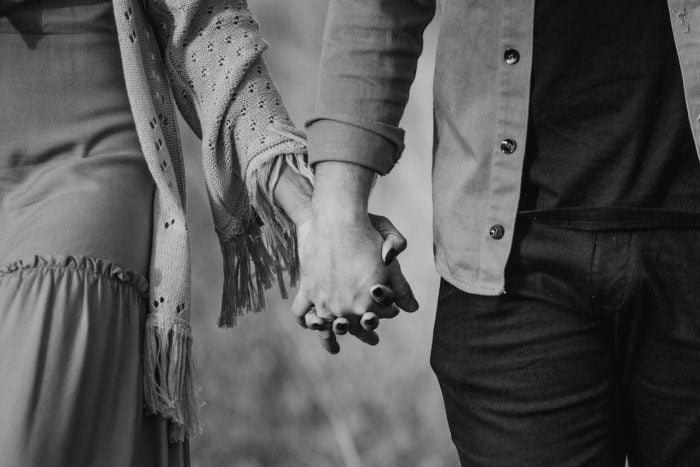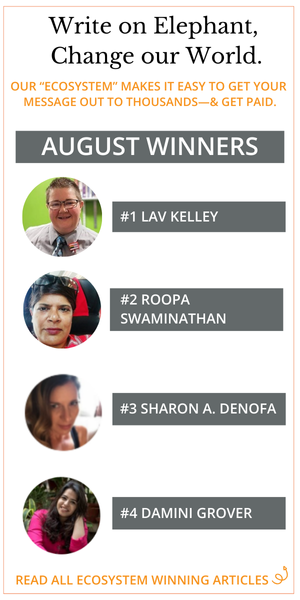Monogamy is not the problem—mononormativity is.
Mononormative: of or pertaining to the practices and institutions that privilege or value monosexual and monogamous relationships as fundamental and “natural” within society. (Source: Wiktionary)
As two hugging co-workers ducked away from the Coldplay kiss cam, this alleged workplace affair took the internet by storm.
Despite not knowing enough personal details, it is likely that both people involved were cheating on their married spouses. While there is no sugarcoating of dishonesty, I would like to explore why cheating remains so common, even risking to be exposed in such disastrous manners. Let’s not watch this situation from a moral high ground, and rather reflect on the “moral standard” that has co-created all this drama and suffering: monogamy.
Most of us grew up not knowing any alternative to monogamy.
The fairy tales I grew up with always ended with one man and one woman “happily ever after.”
The reality I grew up with was rather filled with gossip, secrets, and family drama, since many of the adults in my life have cheated on their partners or have been cheated on; and even for those who never cheated on each other, I observed much hypervigilance, resentment, and force to prevent cheating from happening.
I knew from a young age that this was off.
When I was nine years old, I told a dormitory of 10 girls in a summer camp that I would never get married.
No one sympathized with me. Rather, they said it was “unnatural” to not desire marriage, as they excitedly described how their future prince charming should look like.
The only choices I could see in dating were 1) dishonesty, which was against my fundamental values, 2) suspicion and control, which felt like a trap for myself and others alike, and 3) withdrawal, which meant loneliness and social pressure, but at least less drama.
I chose withdrawal until I fell in love for the first time, with a polyamorous man.
It was the first time that I ever saw an alternative, from the three old choices above that all lead to suffering. It was the first time that a man expressed himself to me with full transparency, and with zero intention to manipulate me into anything I didn’t want. It was the first time that honesty and love felt possible to be experienced at the same time.
The relationship didn’t work out for many reasons, among which was my unresolved jealousy. As I had more experiences, I understood that there were honest people who only wanted monogamy—myself included. After a string of casual relationships, I started to crave the “happily ever after” that fairy tales promised me through monogamy, which I never seemed to have had till that point.
I decided to look for a serious monogamous relationship: with someone honest who likes me and only me.
Quickly after I had the thought, I found this relationship.
Four years ago, I entered a monogamous, heterosexual relationship labelled as “boyfriend and girlfriend,” with a man who honestly only wanted to be with me.
But I didn’t always believe it.
I was jealous of his ex, jealous of his female friends, and resentful at anything he did that didn’t follow my fairy tale script. I replayed dynamics I’d seen when I was young, hypervigilant to anything that could hint at his interest in other women, and despite always finding out that it was nothing more than my insecurities—next time the drama would start again.
Three-plus years into the relationship, I was at an event with my boyfriend, and I had a crush on another man.
I didn’t act on this attraction. It was nothing more than a few butterflies in my stomach and a juicy conversation with my best friend, before I almost forgot about this episode after a few months.
That is when my boyfriend told me: he had a crush on a female friend.
The world was crashing down in front of me. Even though he didn’t act on it either, and rather had a mature conversation drawing their boundaries. Even though I technically just experienced the same giddy feeling toward someone new, and was not even open about it with my partner.
I felt exactly the same as the nine-year-old me: the world has lied to me and love does not exist.
Who lied to me? Certainly not my boyfriend, who told me at the first moment possible about a crush he didn’t act on.
Did love not exist? I was loved monogamously for those entire years; it’s just that I occasionally had trouble believing in it.
So why was I suffering? I committed myself to this structure called monogamy instead of the real person in front of me with all his human complexity. I wanted to avoid the pain processing jealousy, and rather experienced the pain of attempting to control and failing it. I craved a fairy tale relationship but couldn’t see how all the honesty and love I wanted were already there.
I was far from the only person suffering from these unrealistic social norms.
In the present-day western society, LGBTQ+ rights have been gaining significant visibility. Nevertheless, it remains a major taboo to practice, or even discuss, sexual and romantic relationships involving more than two people.
Legally, it is only possible to be married to one person. (I’m not talking about laws when only men are allowed to have multiple wives, but women are not allowed to have multiple husbands.)
Socially, we “should” only be committed to one person, or else we’re selfish, slutty, or emotionally unavailable—and, at all times, for the rest of our lives—or else we’re flaky, irresponsible, or inconsiderate of other people’s feelings.
With such incredible pressure reducing all individuals into the same box that suppresses and shames real human desires, it is not a surprise that many people cheat.
Sure, some people cheat out of bad intentions. But a lot of people cheat because they are afraid of the consequences of expressing their true desires. They might not have even dared to ask if their spouses would be okay with an open relationship, because it is easy to assume that they, like “most people,” are not. The only way to keep the relationship and satisfy one’s own needs becomes cheating, which ironically, leads to bigger consequences once it’s found out.
So is polyamory the better solution then?
No. This is not what I’m expressing at all.
My question is, why are we committing ourselves to structures?
Why are we not discussing nearly enough how to commit fully to ourselves, our own messy and changing humanity, and be in relationships with real people who are also messy and changing all the time, not fitting into our imagination of a perfect partner?
The problem is not with monogamy. Some people decide to be monogamous with their full consciousness and willingness because it is what works best for them.
The problem is with how monogamy is treated as the only acceptable sexual and romantic relationship model for everyone, and at all times, in much of modern society.
This mononormativity, internalized by you and I, creates suffering in our personal relationships that is not even about us but about society’s expectations of us.
But before blaming “the society,” the truth is: mononormativity has been co-created and reinforced by all of us, who suppress our own desires, who are afraid to communicate with our partners, who’d rather live in our imaginations of “the one and only love of my life” than look at the one and only reality that we actually have.
How are we going to end the cycle of suffering?
Take a good look at yourself. Who are you? What are your core values? Which parts of you do you have to heal in order to show up authentically?
Understand that your life is no one else’s business, and your relationships matter to no one other than those directly involved. The structures don’t actually exist! No one is dictating your relationships from above! Plus, by living your life and engaging in your relationships as authentically as possible, you help co-creating better social norms for your loved ones and everyone else.
Express yourself, over and over again. Communicate with each unique person you’re involved with and create each unique relationship of your own, despite what mononormativity tells us.
Accept yourself as you are, and accept others as they are. It is not your job to live according to anyone else’s expectations, and it’s certainly not other people’s job to fit in your expectations.
Take responsibility for your own needs, wants, and actions. Know that as an adult, you have full capability to take care of yourself. Take relationships not as an obligation, but as an addition to your already fulfilled life.
All of the above is possible in all shades on the spectrum of life choices: monogamy, polyamory, open relationships, or not sexually or romantically engaging with anyone at all.
There is no one-size-fits-all formula to happiness.
You need to find your own formula, which will be different from other people’s—and, your own formula will change over time, too.
I was self-employed for three years and swore to never go back to corporate. Now I’m happily employed in a full-time corporate job and have in fact, let go of several side income streams, because that’s what fits my financial and time resources best.
I believed that traveling was my identity. Now I still travel from time to time, but I’m appreciating the stability of being in one place more and more.
I used to like spicy food. Now I stay away from it as much as possible.
We’re not supposed to be the same and do the same things all the time.
We’re all meant to change, expand, evolve—in fact, those who cannot shed their old skins will perish.
So, what is my relationship status?
I am still seeing the man I was in a four-year monogamous relationship with. In fact, there is so much honesty and trust between us, that it is better than it has ever been. But we are no longer a “couple” in a labelled “boyfriend / girlfriend” relationship.
I also started to see a woman. We have been honest and open from the beginning about where we are at, other people we’re seeing, and what we think and feel real-time. We’re seeing how this goes with full openness and trust.
I am spending a lot of time alone. After work, most of my time is spent reading and journaling. I am fully embracing my needs of being with myself, and I feel more connected with my body, mind, spirit than ever.
And all of these can change in the future. They are, as everything else, constantly in motion.
Am I single or in a relationship? In a monogamous, open, or polyamorous relationship? With everything I laid out above, it’s hard to say in absolute terms.
Am I monogamous or polyamorous? I identify as neither, and I don’t believe the majority of the people can be labelled in such a binary way. It all depends on the real-time status of myself and other people I interact with.
Am I heterosexual, homosexual, or bisexual? Well, I’m just starting to explore how I feel sexually and romantically around women. I’m certainly attracted to men, but not all men (I don’t think any heterosexual person is attracted to all people of the opposite sex). If I must use a label, I think “pansexual” is the one that lands the best. After all, can’t we just say that we like humans?
We like humans. That’s what I hope more and more of us will say.
That we love ourselves, first and foremost. That we love each other in our unique human shapes without divine expectations. That we love each other in oneness, beyond divisions. That we like not even just humans: we like animals, plants, art, technology…everything that the universe has created and is always creating: because we’re a part of the co-creation with the universe. We’re in a constant relationship with the universe.
This relationship has no labels, no timelines, no structures; it is abundant, infinite, and ever-evolving—maybe this is what the forever promise we look for in romance is actually all about.
~


 Share on bsky
Share on bsky




Read 0 comments and reply